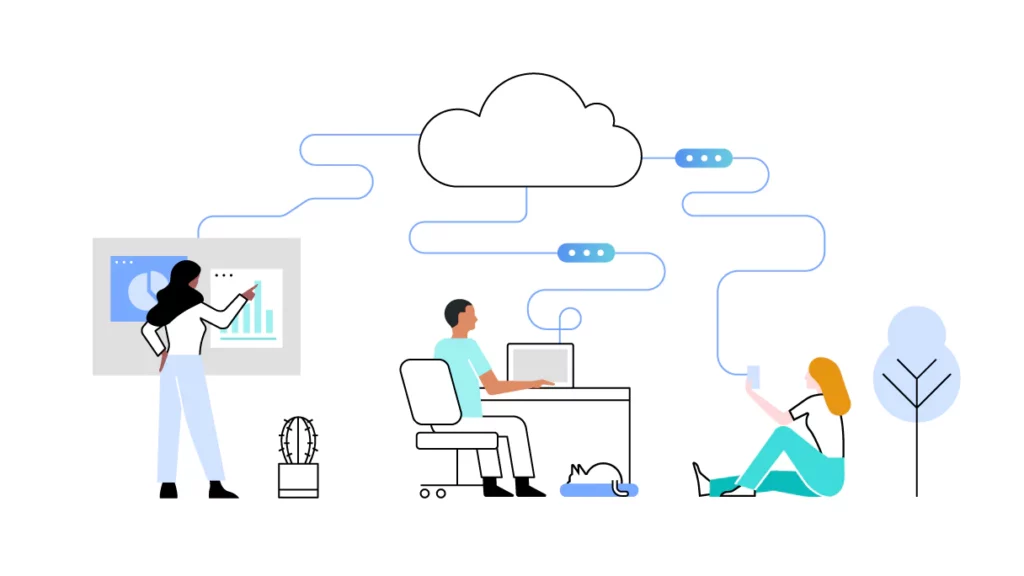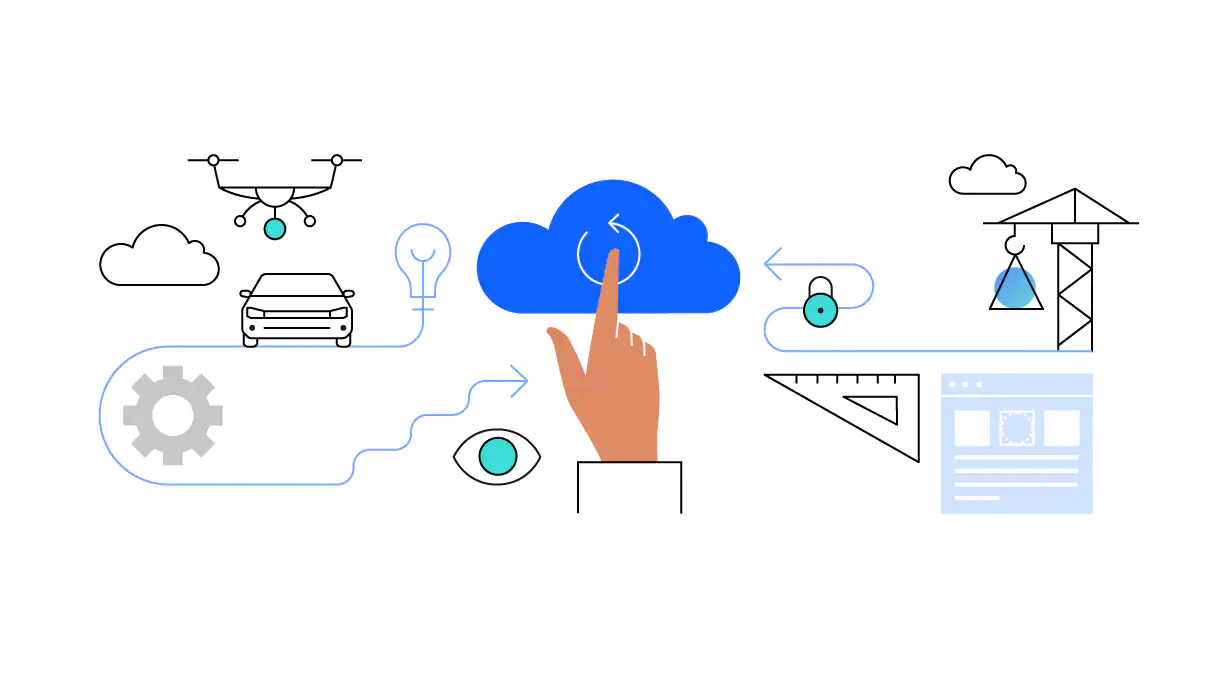The cloud servers are the key for new cloud computing infrastructure. We will guide you through the cloud services main features and advantages. The first step is to answer the question, what is a cloud server?
A cloud server is a powerful virtual or physical infrastructure to store and process information and applications. It is created by software, dividing a physical server through several virtual servers. Each organization uses an infrastructure model as service (IaaS) in order to process workloads and store data. The main advantage is the access to the virtual server from a remote location using an online interface.

Main features of cloud services
- Computer infrastructure may be physical (bare metal), virtual or a combination of both. It depends on the uses.
- It has all the benefits of a local server.
- Cloud services allow users to process huge amounts of workloads and save data.
- You can access automated services on demand through and API.
- Depending on the usage, you can pay on a monthly basis or by year.
- Users of cloud services can share hosting scaled according to necessities
Reasons to choose a cloud server
There are several reasons to choose cloud services nowadays. Here we will list the most interesting ones, from cost effectiveness to scalability or integration.
Cost effectiveness
Cloud services allow organizations to pay only for what they need, reducing the cost of hardware maintenance in the server.
Scalability
One of the main advantages of cloud services is the scalability of information resources and storage. If you have an organization with fluctuating necessities, then cloud services can be customized accordingly.
Integration
Cloud servers of an organization are connected in a network that guarantees uninterrupted communication and fast deployment of tools. You can control every data file from a single panel.
Discovering cloud services
- Virtual or physical servers: the bare metal or physical servers are better options with heavy workloads and data amounts. A virtual server is the correct option for a variable work rate.
- Virtualization: the software for virtualization is very diverse. You can choose from several options like VMware, Hyper-V or Parallels, among others.
- Customization: a physical server has more customization options, you can choose process power, additional RAM or even a backup power supply.
- Security: to protect your data, cloud services include firewalls, software antivirus, supervision and protection from host attacks.
Choosing cloud services
Here we will analyze some of the main concepts.
Technological cost against supplier
Having participated in several purchase decisions for thousands of server clients, in spite of the size of the organization, there are some points in common. Each profile is different, from small websites to stores with millions of visits per day. But at the time of choosing, they all ask the same questions.
How much does it cost? Which is the best technology or set up? Which supplier is the best?
Any webmaster has to answer these questions at some point. They may seem clear and direct questions, but they tend to overlap and the purchase decision gets harder. The main topics for choosing cloud services are: cost, technology and storage supplier. It’s normal for these aspects to overlap.
There are some organizations where the budget is above all other aspects, or loyal clients that do not want to change supplier, and also webmasters who choose performance and storage capacity without caring for the budget. Each decision has these three aspects in mind, but not always with the same importance.
There’s also a dynamic that belongs to cloud servers in the run. So the cost will not be the same at the beginning or after some months or years, and then it’s time to make decisions again. Switching suppliers may seem uncomfortable, and managing several suppliers can be complicated. If the servers have to work together, they tend to do it through public Internet, slowing down the general performance of cloud services.

